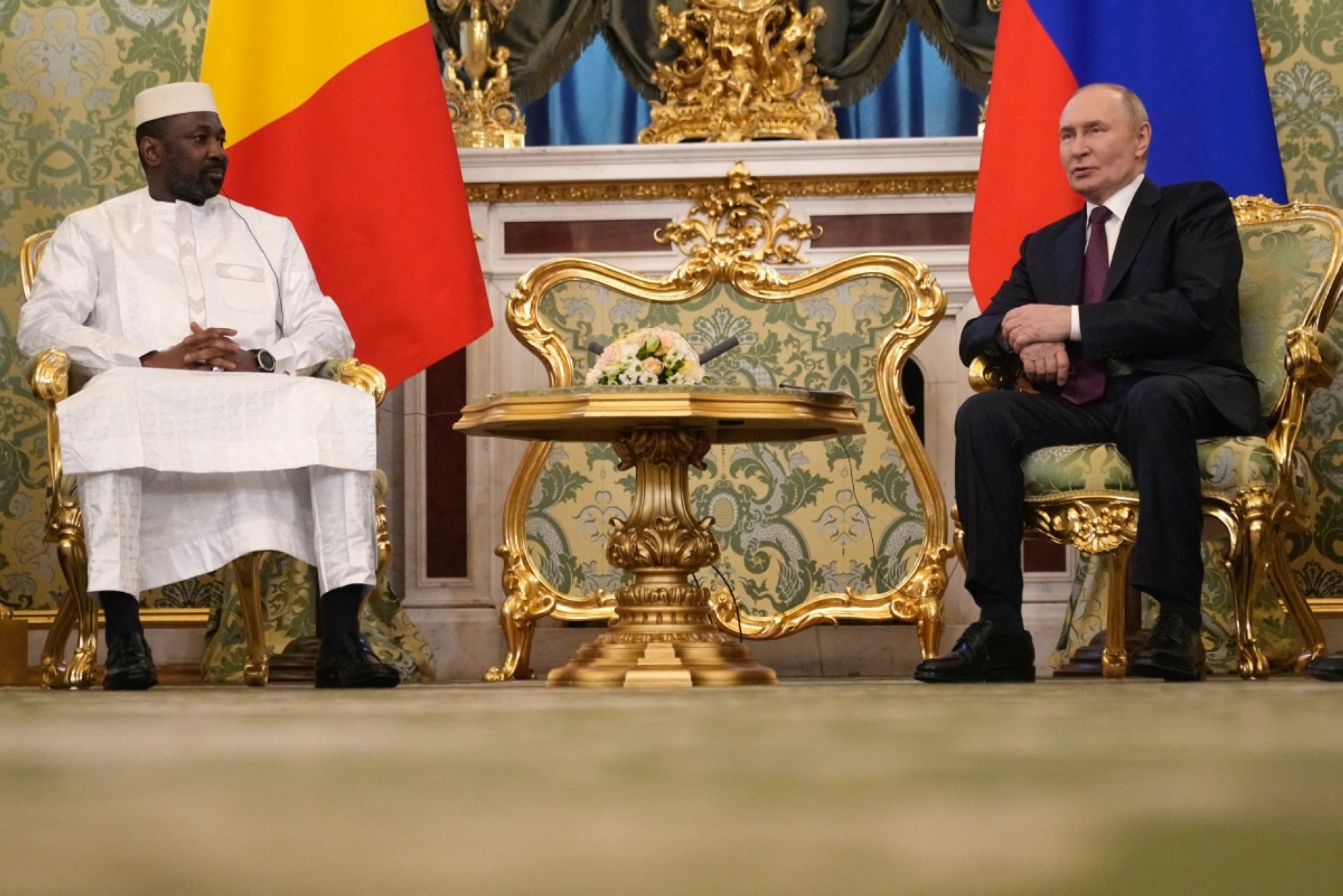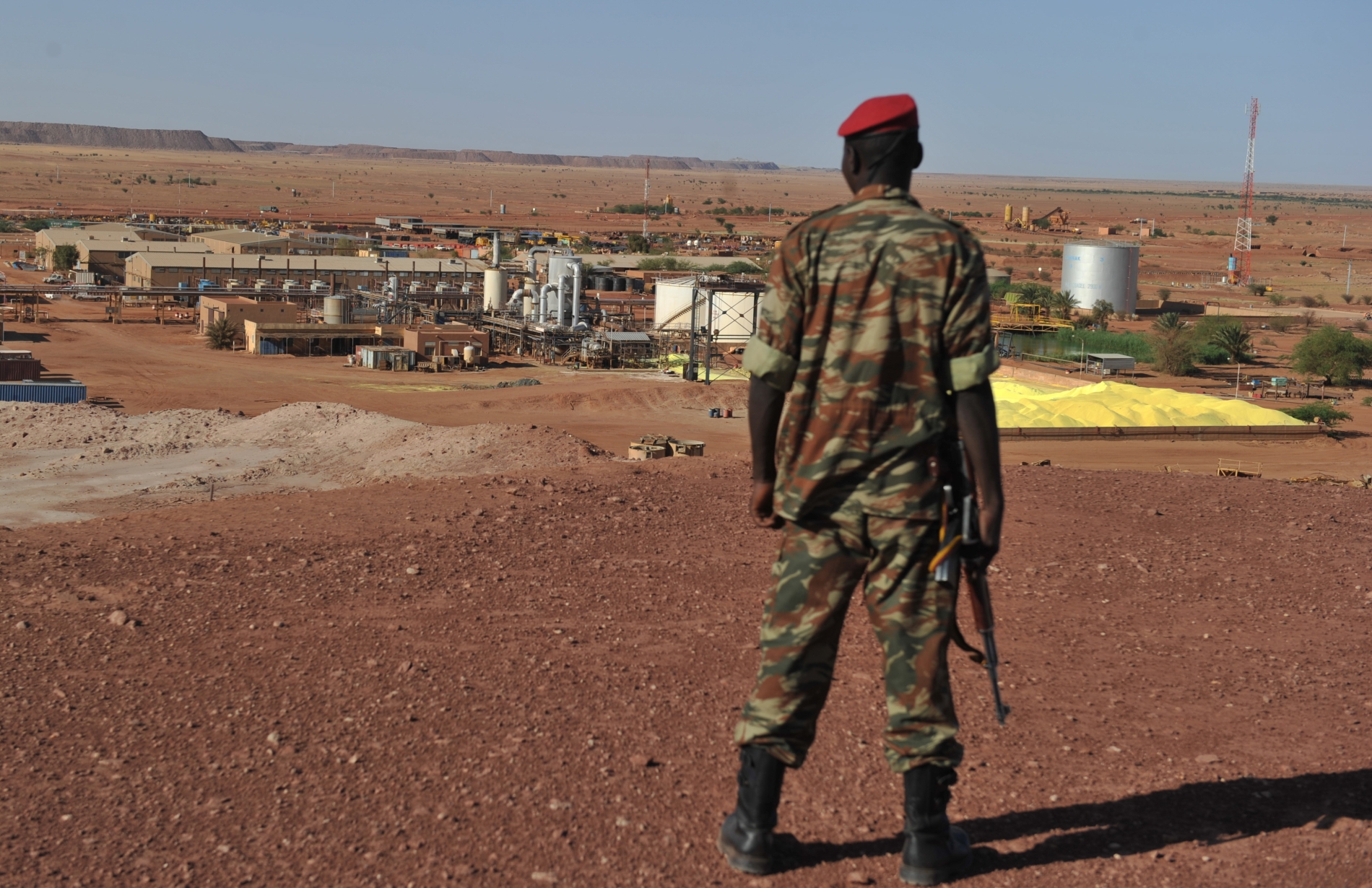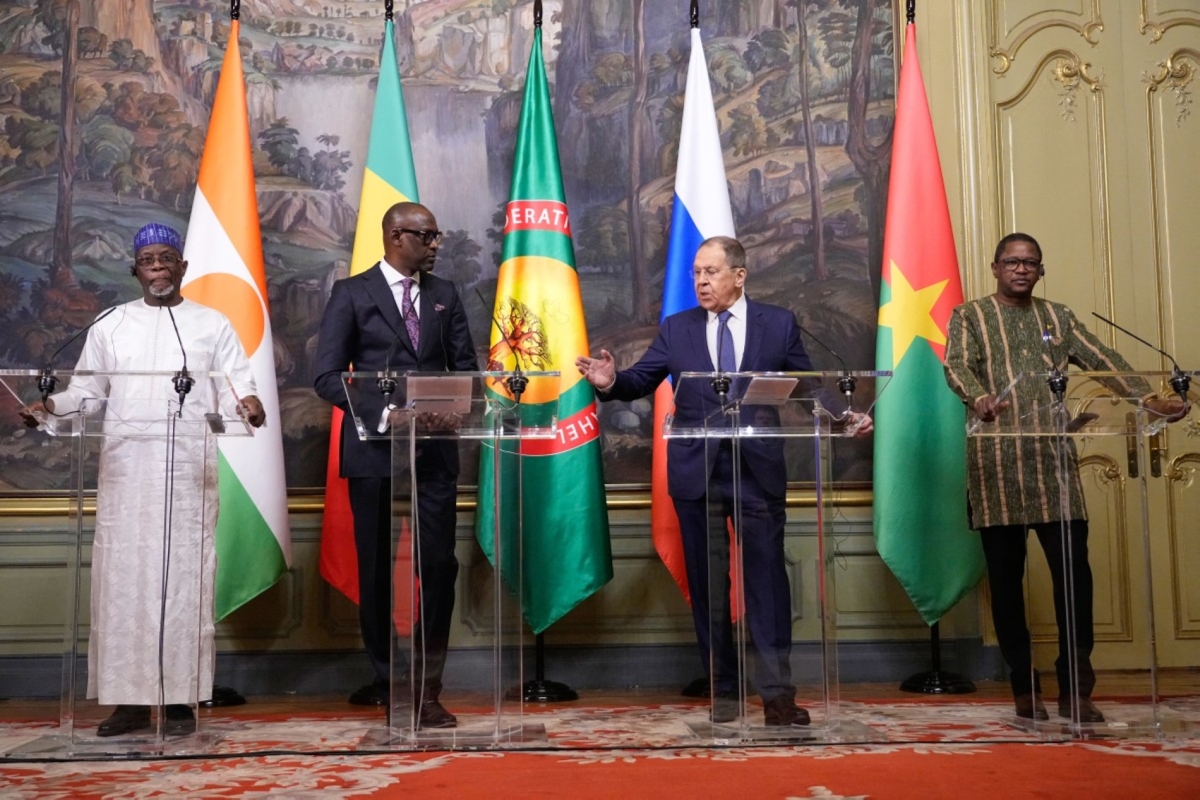Russia has held high-level talks with officials in Niger, Mali and Burkina Faso as it seeks to protect its influence in the Sahel from renewed competition from the United States following US President Donald Trump’s unveiling of an Africa policy based on "resources and loyalty in exchange for security and investment."
But the good news is Moscow doesn't have to start from scratch. It already wields considerable influence in Africa, particularly in the Sahel. Having said that, it will be under renewed pressure to deliver on its investment promises—including on peaceful nuclear power—amid stiff competition from the US and China.
On 28 July, a Russian delegation led by Energy Minister Sergey Tsivilev began a diplomatic tour in the Sahel in Niamey, where he held talks with President Abdourahamane Tiani and Prime Minister Ali Lamine Zeine. A memorandum of understanding between Rosatom, the Russian state nuclear corporation, and Niger’s Ministry of Energy was signed, where, in addition to uranium extraction, Moscow would help Niger build civilian nuclear power plants and train personnel.
Meanwhile, Russia's Deputy Defence Minister General Yunus-bek Yevkurov and Lieutenant General Andrey Averyanov discussed enhanced military co-operation with Niger’s Defence Minister Salifou Modi. They were held after the country’s president, General Abdourahamane Tchiani, reaffirmed his commitment to full independence and said Niger had no plans to hand France—a former colonial power—back control over its uranium mines.
For its part, Bamako hosted a Russian nuclear delegation also led by Tsivilev that included representatives from Russian companies Rosatom, Sberbank, and Yadran Group on 29 July. It followed an agreement signed during President Assimi Goïta’s visit to Moscow in June.

Mali’s Economy and Finance Minister Alousséni Sanou led a group of ten ministers in wide-ranging talks. They covered infrastructure, transport, industry, agriculture, trade and finance, security, investment protection, mining and energy. An agreement was signed for Russian specialists to conduct geological mapping and create an interactive map of Mali’s mineral resources. Sanou described the talks as a strategic milestone for economic development.
Yevkurov and Averyanov also met with Mali’s Defence Minister Sadio Camara to discuss joint operations with Russia’s Africa Corps against terrorism and radical Islamism. Expanded training is planned.
In Ouagadougou, Tsivilev’s meeting with Burkina Faso’s President Ibrahim Traoré resulted in the establishment of an intergovernmental commission, covering energy, industry, infrastructure and security. Traoré proposed a Sahel-Russia Business Council. A Burkinabè co-chair will be appointed shortly.
Moscow agreed to provide a mobile anti-epidemic laboratory by December. The Russian energy company Inter RAO signed a memorandum of understanding with Burkina Faso’s Ministry of Energy on developing thermal power plants. High-level military talks took place with Defence Minister Célestin Simporé and Brigadier General Moussa Diallo.
Mali, Burkina Faso and Niger agreed to establish a joint investment bank. According to Serge Balima, adviser to the president of Burkina Faso, the bank will fund energy, infrastructure and extractive industries. Each country will contribute 5% of its tax revenues.
Meanwhile, Moscow’s ambassador to Benin told Izvestia that Russia is preparing to sign an intergovernmental agreement with the country on military cooperation. A similar accord with Togo was signed in March. Alongside the political significance, the move would also secure access to Benin’s ports, important infrastructure for Russia’s wider operations in the Sahel.

In Tanzania, Rosatom’s Chief Executive Officer Alexey Likhachev announced the commissioning of a pilot uranium plant by Mantra Tanzania Ltd at the Mkuju River project at a ceremony held on 30 July in the presence of Tanzania’s President Samia Suluhu Hassan. Construction of the plant is set to begin in 2026 and is expected to be completed by 2029. It will create up to 4,000 jobs and operate for over 20 years.
Russia is a major global supplier of uranium, with significant processing capacity, and is a key supplier of the ingredients and technology required to develop nuclear power. Moscow's growing role in African uranium further complicates Europe’s energy dependencies, particularly for France.
Russia’s push to develop nuclear energy in the Sahel will help spur broader industrial investment as energy-intensive sectors require stable, large-scale electricity generation and nuclear power to operate. With its deep knowledge and resources in nuclear energy, Russia is poised to play a central role in the development of the Sahel.












